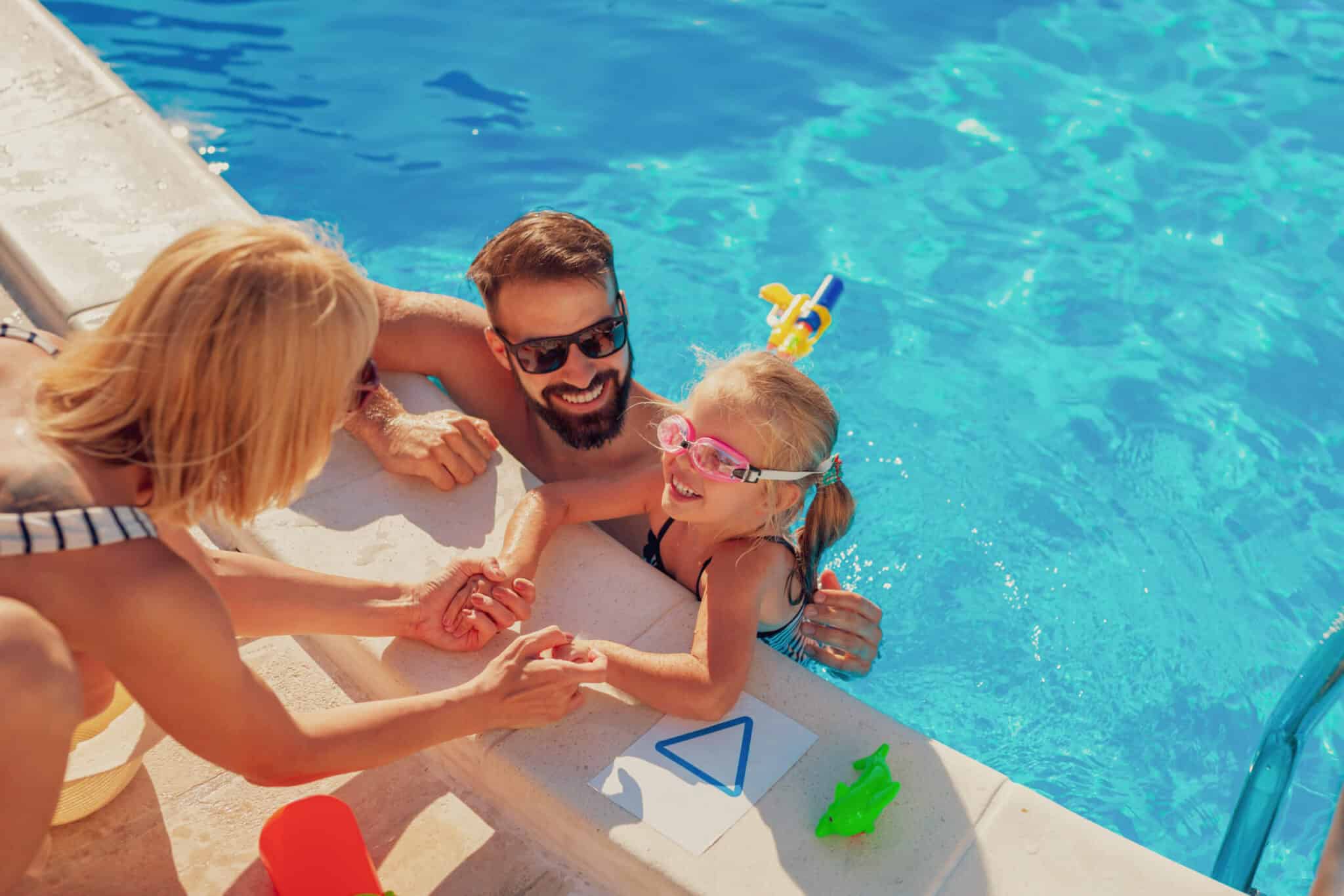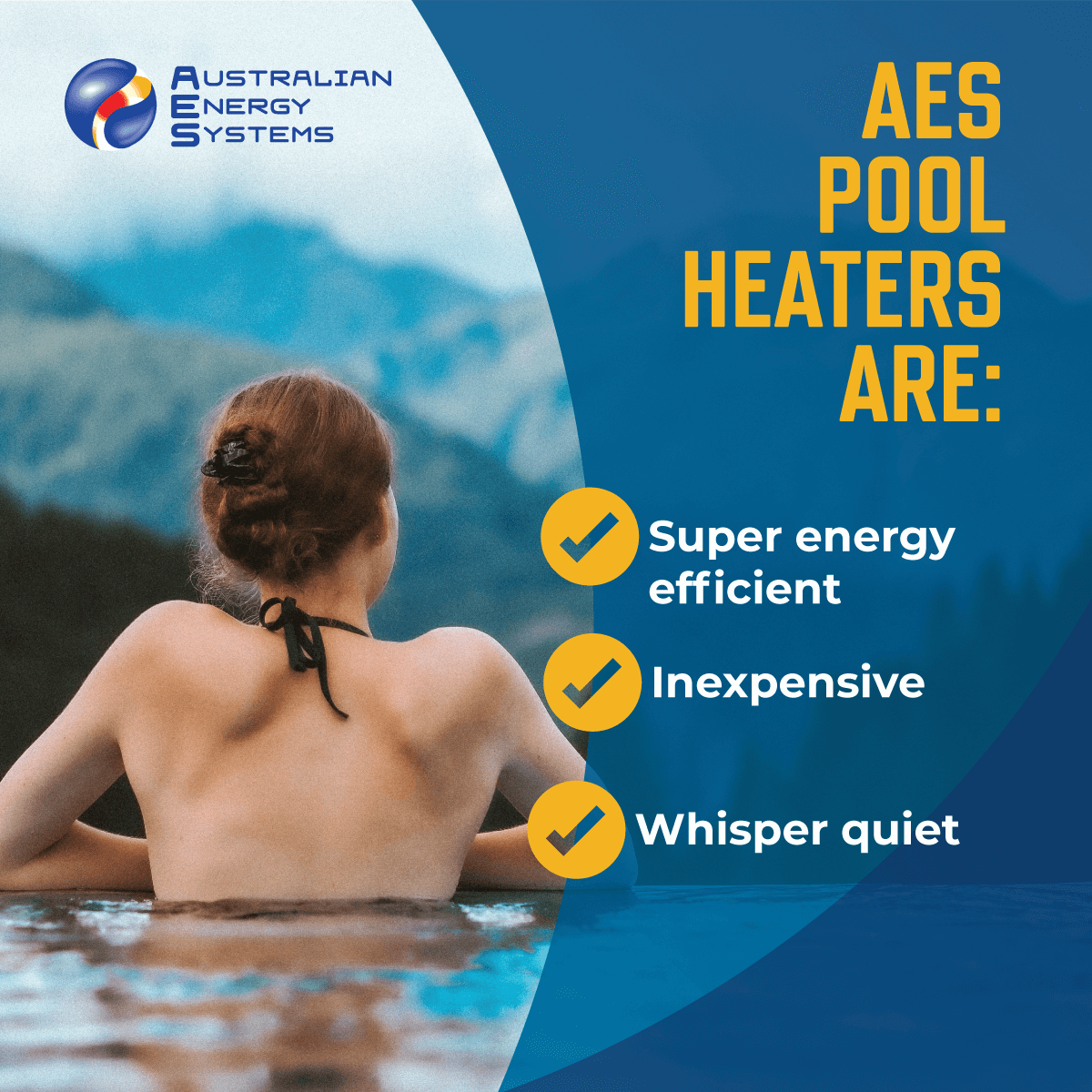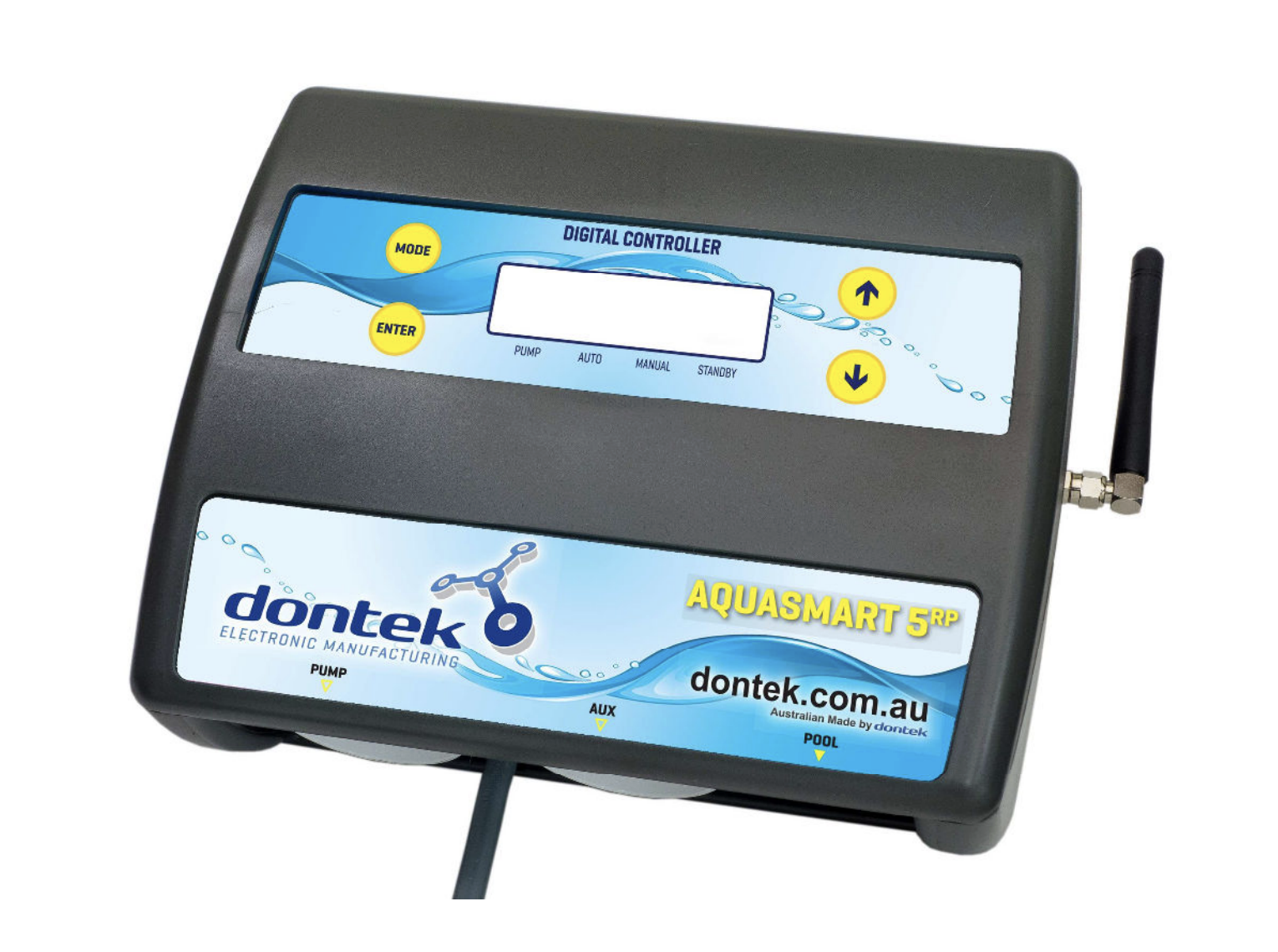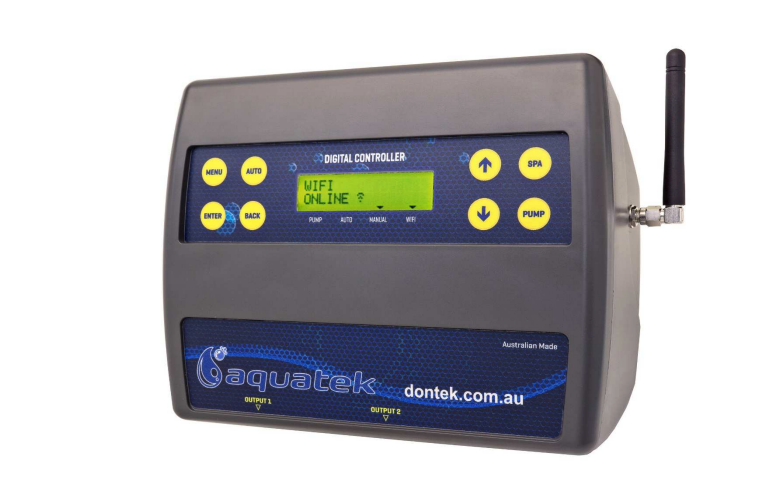As pool owners, we all dream of diving into perfectly warm water whenever the mood strikes. But how long does it actually take to heat your pool, and how can you do it efficiently?
When it comes to heating your pool from scratch, you’ll want to run your heat pump constantly for up to 3 days (24 hours a day) with a pool cover on. This allows the pool heat pump to work its magic, gradually raising the water temperature to your desired level. It might seem like a long time, but patience pays off!
Once you’ve reached your ideal temperature, it’s all about maintenance. To keep your pool comfortably warm in the cooler months, you’ll still need to run your heat pump for a minimum of 16 hours per day and keep the pool cover on except when swimming. This approach ensures your pool stays inviting while optimising energy efficiency.
What Influences the Runtime of a Pool Heat Pump?
Before we can determine how long to run your heat pump, it’s essential to understand the factors that influence heating time:
- Pool heat pump sizing and volume
- Desired water temperature
- Ambient air temperature
- Heat pump capacity
- Pool cover usage
- Sun exposure/shading
- Wind exposure
- Humidity levels
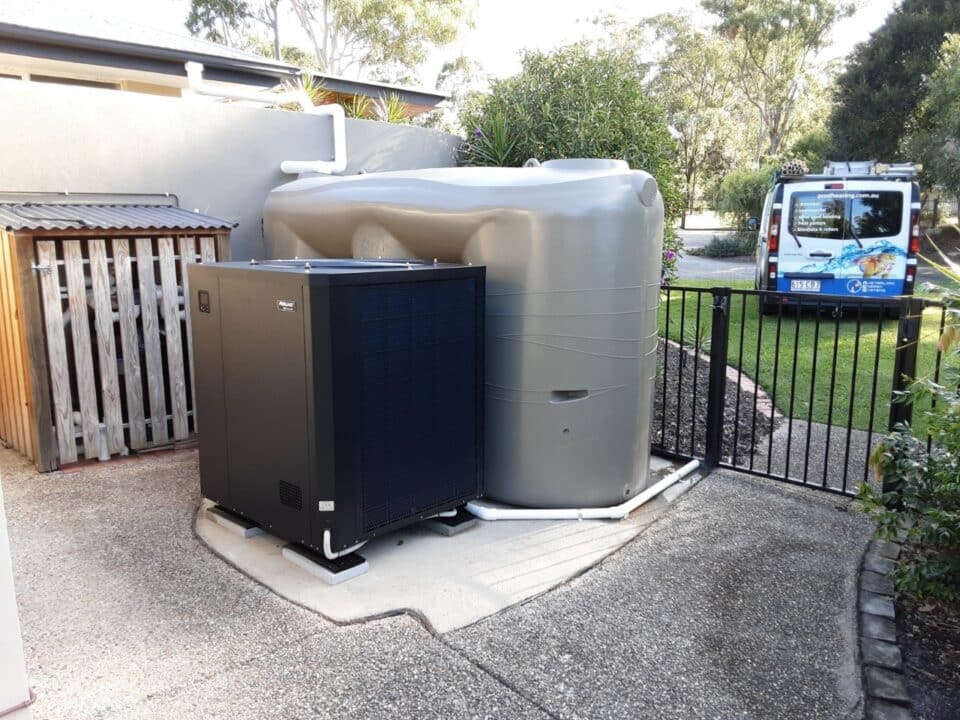
Each of these elements plays a crucial role in determining how quickly and efficiently your pool heats up. But don’t worry – we’ll break it down for you!
Calculating Heating Time for Different Pool Sizes
So, how long will it take to heat your specific pool from scatch? While there’s no one-size-fits-all answer, we can provide some general guidelines:
- Small pools (up to 55,000 liters): 24-72 hours
- Medium pools (55,000 – 115,000 liters): 48-96 hours
- Large pools (over 115,000 liters): 72-120 hours
Remember, these are estimates and can vary based on the factors mentioned earlier. But don’t let these numbers discourage you – there are plenty of ways to maximise your heat pump’s efficiency and reduce heating time!
Maximising Heat Pump Efficiency
Who doesn’t want to heat their pool faster and save money in the process? Here are some tried-and-true tips to boost your heat pump’s performance:
- The Power of a Thermal Cover: Want to supercharge your heating efficiency? A thermal pool cover is your best friend! It significantly reduces heat loss when your pool isn’t in use, helping your heat pump work smarter, not harder. It’s a simple addition that can make a big difference to your comfort and your energy bills. This simple step can reduce heat loss by up to 70%!
- Optimise Thermostat Settings: Set your desired temperature and let the heat pump do its job. Constantly adjusting the thermostat can lead to inefficiency.
- Schedule Smart: Run your heat pump during the warmest parts of the day when it’s most efficient. Many modern heat pumps come with programmable timers to make this easy.
- Winter Considerations: While solar systems are great for warmer months, they often fall short during winter. Your heat pump becomes the star player in colder weather, ensuring you can enjoy your pool for longer.
- Regular Heat Pump Maintenance: Not planning to swim for a while? Don’t let your heat pump gather dust. Run it for 4-5 hours in one cycle every so often. This practice helps detect any potential leaks early and keeps water circulating through the system, preventing stagnation.
Using Technology to Enhance Heating Efficiency
Benefits of Smart Pool Heating Solutions
Gone are the days of manually adjusting pool temperatures. Smart pool heating systems are revolutionising the way we manage our pools. But how do they stack up against traditional methods?
- Inverter Heating Technology: Inverter pool heaters maintain water temperature much more efficiently than traditional methods. They adjust their output to match the desired temperature, providing consistent warmth while minimizing energy consumption. This efficiency can lead to significant savings on energy costs compared to conventional heaters.
- Automated Heating Controls: These systems learn your preferences and adjust heating schedules accordingly, optimizing energy use.
- IoT-Enabled Systems: Newer models come equipped with IoT capabilities, connecting to WiFi to send diagnostics directly to the manufacturer. This proactive feature allows for faults to be addressed before owners are even aware of them, ensuring seamless operation and reducing downtime.
- Manual vs. Automated Efficiency: While manual controls give you full control, automated systems can react to changes in weather and usage patterns, potentially saving up to 30% on energy costs.
- Smart Thermostats: These devices can integrate with your home automation system, allowing you to control your pool temperature from anywhere. Studies show that smart thermostats can reduce energy consumption by up to 15% when used correctly.
Traditional Heaters vs. Modern Heat Pumps
When it comes to pool heating, heat pumps are leading the charge in efficiency. Here’s why:
- Energy Efficiency: Heat pumps can be up to 600% efficient, meaning they produce 6 units of heat for every unit of electricity consumed.
- Cost-Effectiveness: While initial costs may be higher, heat pumps can save you up to 80% on operating costs compared to gas heaters.
- Environmental Impact: Heat pumps produce fewer emissions, making them a greener choice for eco-conscious pool owners.
Heat Pump Maintenance to Maximise Efficiency
Regular maintenance is crucial for keeping your heat pump running at peak performance. Here’s a quick checklist:
☑️ Clean or replace filters monthly
☑️ Check for and clear any debris around the unit
☑️ Ensure proper water flow
☑️ Schedule annual professional inspections
By following these simple steps, you can extend the life of your heat pump and maintain its efficiency, saving you time and money in the long run.
FAQ
- How Long Does It Take to Heat a Pool Using a Heat Pump?
- Initial heating: We recommend running a heat pump constantly for approximately 3 days (24 hours a day) to heat a pool from scratch.
- Estimated heating times based on pool size:
- Small pools (up to 55,000 liters): 24-72 hours
- Medium pools (55,000 – 115,000 liters): 48-96 hours
- Large pools (over 115,000 liters): 72-120 hours
Read more: How long does it take to heat a pool
- How long should I run a heat pump to initially heat my pool?
Run the heat pump constantly (24 hours a day) for approximately 3 days when heating from scratch.
- What’s the optimal daily run time for maintaining pool temperature with a heat pump?
In the cooler months you may need to run the heat pump for a minimum of 16 hours per day to maintain the desired temperature efficiently.
- Do gas heaters and solar systems have the same run times as heat pumps?
No, run times can vary. Gas heaters typically heat faster than heat pumps, while solar panels may require longer run times, especially in suboptimal conditions.
- What factors affect the optimal run time for pool heating systems?
Key factors include pool size, desired water temperature, ambient air temperature, heating system capacity, pool cover usage, wind exposure, and humidity levels.
- How can I maximise the efficiency of my pool heating system?
Use a thermal pool cover, set a consistent temperature, run the system during warmer parts of the day, and perform regular maintenance.
- How often should I run my heat pump if I’m not using the pool regularly?
Run it for 4-5 hours in one cycle periodically to maintain the system and detect any potential issues.

